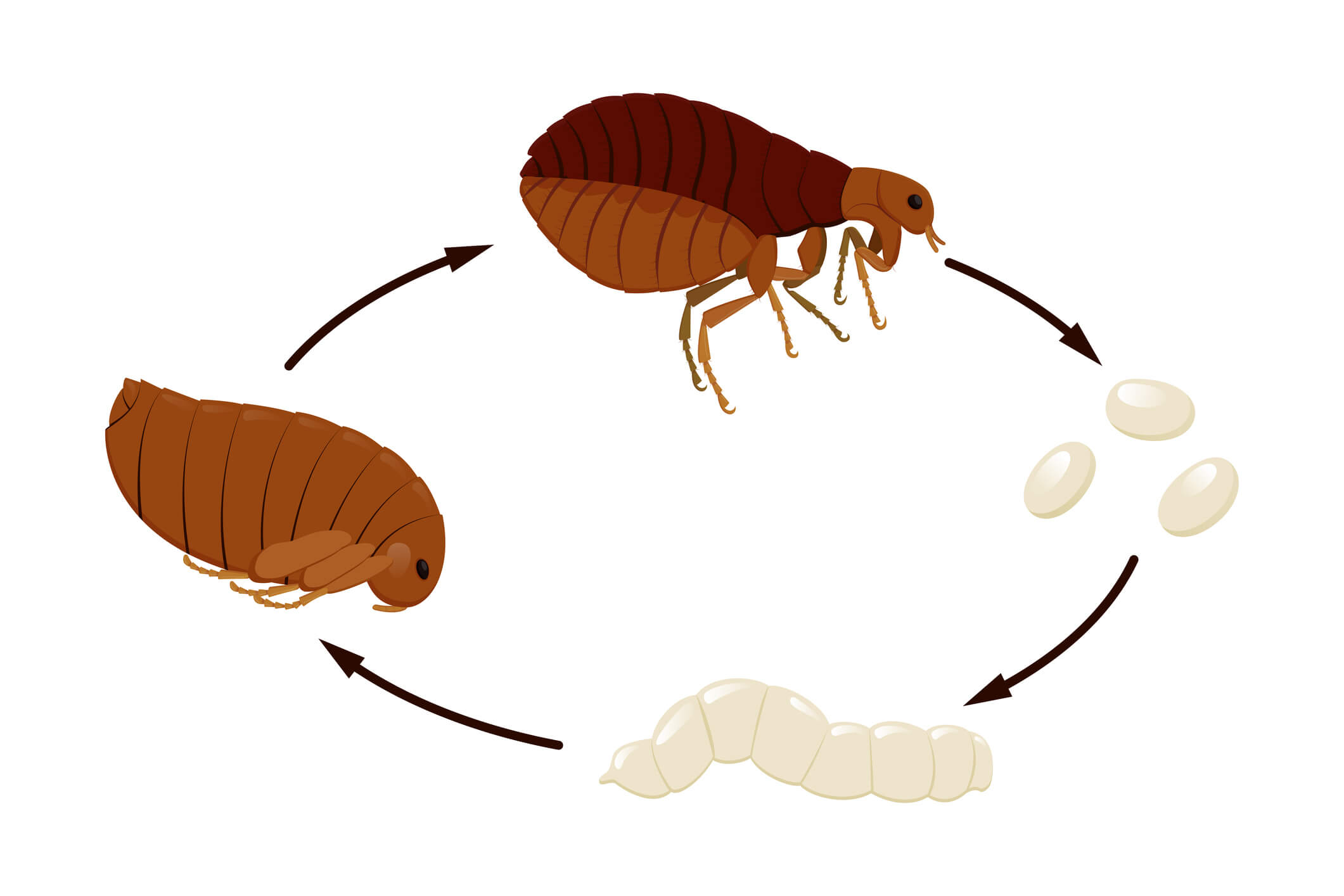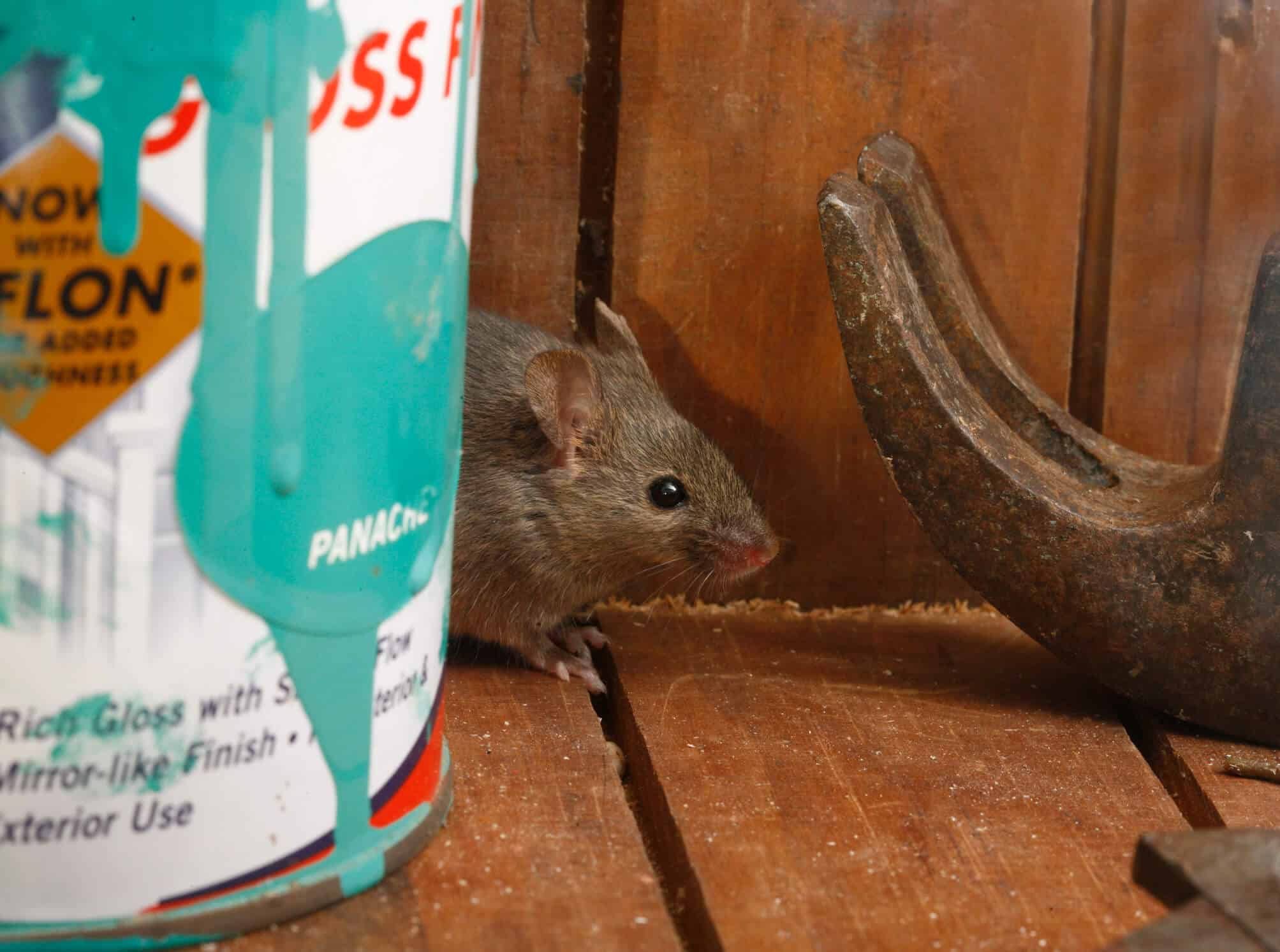Can Humans Get Fleas?

Covered in bites behind your knees? Do your ankles have itchy red bumps? If so, there may be fleas in your home. Could you be carrying those fleas and helping them survive?
The simple answer is no. Fleas don’t live on humans, but they can live on your pets and bite you as they’re jumping around.
Despite the fact that there are over 2,000 species of fleas in the world, there has never been evidence that they’ll live on humans—not even in your hair. However, fleas do bite people, and those bites can lead to infection, irritation, and illness. They’ll also establish themselves in your home, laying eggs that lead to new rounds of irritating, jumping insects you’ll need to deal with.

What are fleas?
Fleas, which are in the order Siphonaptera, are small, wingless, jumping insects. There are many species of fleas, but most of them are no larger than .13 inches in length. They are dark brown or black, and they may appear to be specks on your legs or clothing at first glance.
Fleas are dangerous in some ways. They have the potential to spread diseases, and they were the main transmitting agent of the Black Death in the Middle Ages. The exact diseases or illnesses they can spread depends on the species, where the fleas live, and their primary hosts.

Do Fleas live on Humans?
Fleas don’t live on humans. While a large infestation of fleas may result in fleas landing and feeding on you, they aren’t actively living on your body. There are over 2,000 flea species, and only one is considered a “human” flea—the Pulex irritans. It’s called the human flea because it’s often found in areas associated with people, such as in homes and on pets. Despite its name, it doesn’t live on people.
It’s more likely that fleas will live on pets or farm animals. So if you’re around these animals regularly, it’s possible that fleas could hitch a ride on you and end up making nests in your home or, in many cases, on your pets.
Keep in mind that fleas like to live on mammals when they’re feeding, and they prefer furrier species. Eggs, especially those of the Pulex irritans, tend to fall off the host mammal, which is why they can be found in carpets or around the host’s home.
It’s because of the likelihood of eggs falling off the host that fleas can end up breeding in unusual places. For example, fleas can establish themselves in vehicles as long as they can feed on hosts regularly. If your bites seem to happen while you’re driving, consider the potential that fleas might be making their home there.

Can I get fleas from my pet?
In a sense, yes. While fleas are unlikely to make your body their home, they can jump to you from the ground or from other mammals. For example, if your dog has fleas, then the fleas could jump over onto you and bite you. That transfer technically means you “have fleas” but not in the same sense as a dog or cat might have and carry them around.
Fleas can establish themselves in your home once they have a host to feed on. So as long as you and your pets are dealing with an infestation, you could end up with uncomfortable bites and be at risk of illness. That’s why it’s important to look into ways to get rid of fleas as soon as you think you have them.

What do Flea bites look like?
Flea bites usually look like small, red bumps. It’s normal to see the bites in clusters, so you should expect to see a few together in a line.
Unlike the kinds of bumps caused by mosquitoes, which tend to be sporadic and swollen, the bumps from a flea bite normally stay small. However, if you’re allergic, they may welt or grow in size.
You may suspect fleas as the culprit if you have bites around the ankles or legs. However, they can also bite in other places such as at the waist or groin, in the folds of the knees or elbows, or around the armpits.

What should I do if a Flea bites me?
Flea bites are notoriously uncomfortable, and it’s likely that you have more than one bite to deal with if you’re facing an infestation.
Besides the itchiness and irritation of their bites, fleas can carry pathogens like plague, flea-borne (murine) typhus, and cat scratch disease. They can also potentially carry parasites such as tapeworms. Each of these illnesses occurs within the United States.
To take care of the flea bites:
- Don’t scratch at them, since scratching can introduce bacteria.
- Wash the bites with an antiseptic soap.
- Use anti-itch creams to calm the bites.
- Use ice to reduce swelling.
- Talk to a pharmacist about potential tapeworm infection.
- See a doctor if you develop symptoms of an infection or illness.
If you’re bitten by fleas, don’t panic, but do look for signs of illness like a high fever or lethargy. If you live in an area where plague is present, such as rural areas of the western U.S., you may want to reach out to your medical provider for guidance after getting flea bites. California, Texas, and Hawaii have the most cases of typhus, so if you live there and have symptoms of illness after being bitten by a flea, it’s a good idea to seek medical attention.
Get help getting control of fleas
Fleas are pests that can cause irritating bites and troublesome illnesses, so it’s important to get them under control as soon as possible. While they won’t make your hair their home or live on your body, they can—and do bite—and they’ll infest your home given the opportunity.
We’re here to help our neighbors get rid of flea infestations so you can relax at home again. Contact us today at Moxie Pest Control, and we’ll help you get things back to normal.



